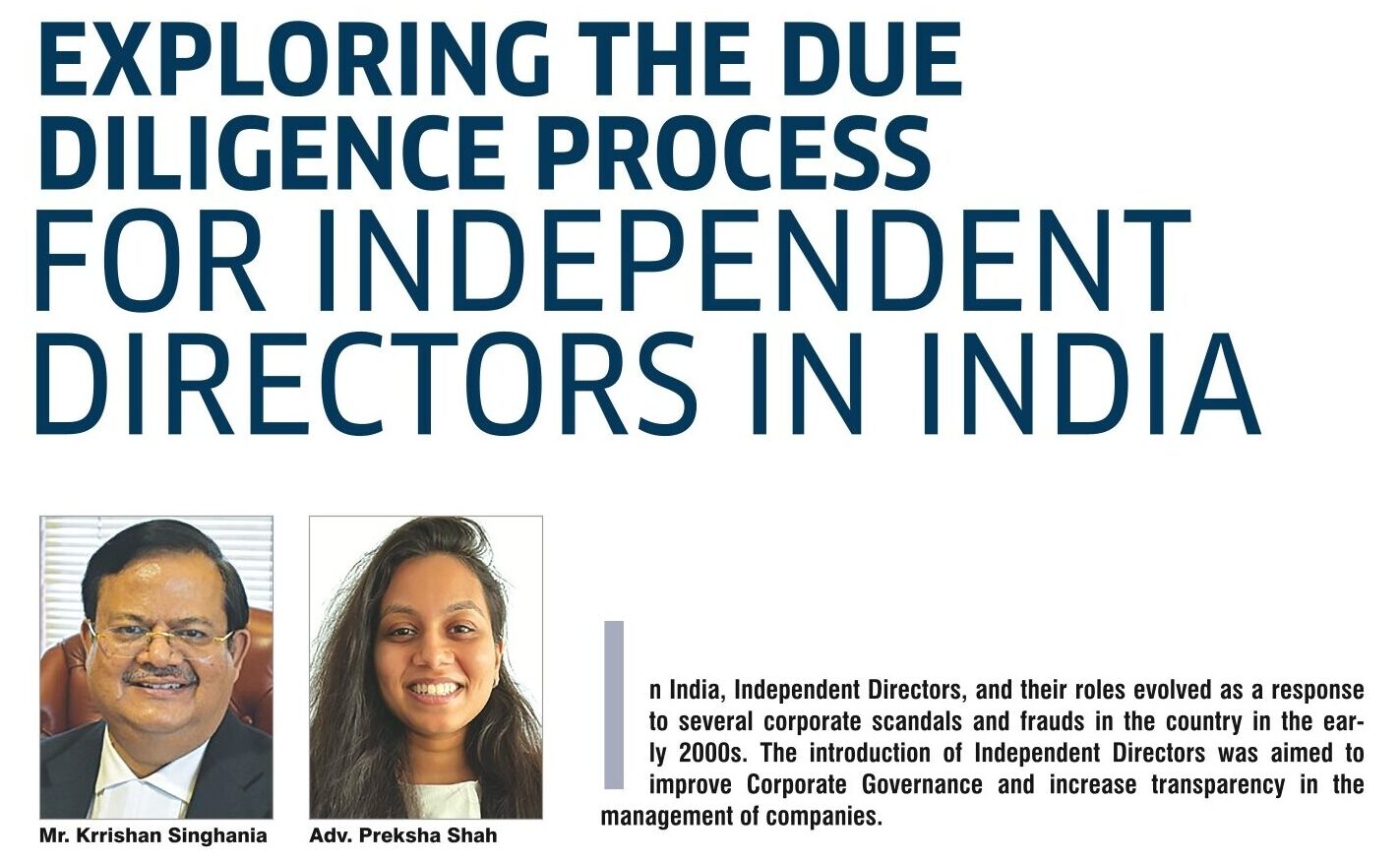Lacunae in Indian Legislative Statutes
Statutes lack an attribution of liability provisions that distinguish between executive and non-executive directors. (Both civil and criminal). The Contract Labour (Regulation and Abolition) Act, 1970, the Environment (Protection) Act, 1986, and the Prevention of Money Laundering Act, 2002 are a few such laws.
Due Diligence: Company’s Corporate Governance Policy
The Act requires every listed company to comply with various corporate governance norms. These include the appointment of independent directors, the composition of the board of directors, the establishment of anaudit committee, and the disclosure of financial and non-financial information. They must review the company’s compliance with these norms and ensure the active pursuance of effective corporate governance practices. This review should also include the company’s compliance with environmental, social, and governance standards, which have become increasingly relevant in recent years.








Leave a Reply